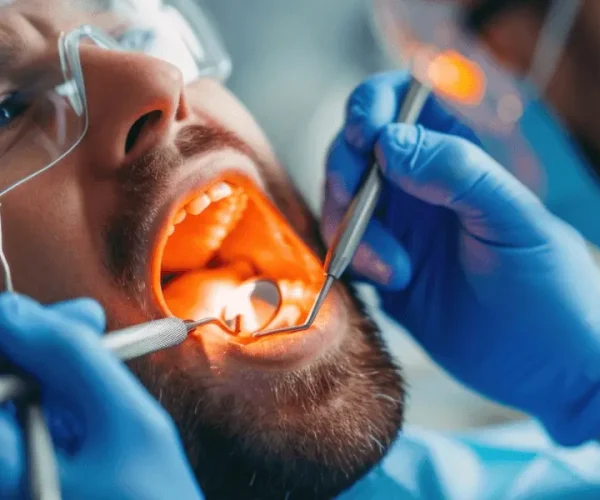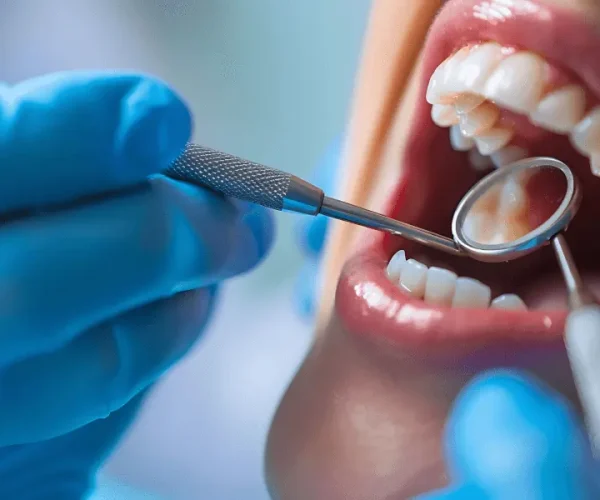Routine maintenance of braces keeps teeth moving into the right position.

Healthy gums are the foundation of a strong, vibrant smile. Just like skin, gums also require special attention to maintain their health. Different gum types—ranging from healthy to sensitive or receding—demand tailored care routines. Neglecting gum health can lead to issues such as gingivitis, periodontitis, and even tooth loss. In this guide, we’ll cover expert tips for every gum type to help you maintain optimal oral health.
Understanding Your Gum Type
Before crafting a gum care routine, it’s important to know your gum type. Identifying whether your gums are healthy, sensitive, or receding can help determine the appropriate care regimen.
- Healthy Gums: Firm, pink, and free of discomfort. Healthy gums do not bleed easily and are tight around the teeth.
- Sensitive Gums: Prone to irritation, redness, swelling, and may bleed during brushing or flossing.
- Receding Gums: The gum tissue pulls back, exposing the roots of the teeth, often leading to increased sensitivity.
2. Essential Gum Care Tips
Regardless of your gum type, maintaining a consistent oral hygiene routine is key. Here’s a breakdown of the essential steps for proper gum care.
A. Brushing Techniques
- Choose a Soft-Bristled Brush: Opt for a soft-bristled toothbrush to avoid damaging the delicate gum tissue. Hard bristles can cause gum irritation and contribute to receding gums.
- Brush Twice a Day: Ensure you brush your teeth at least twice a day using fluoride toothpaste. Focus on cleaning along the gum line, where plaque tends to accumulate.
- Use Proper Technique: Hold your toothbrush at a 45-degree angle to the gum line and use gentle, circular motions. Avoid brushing too aggressively, as this can wear away gum tissue.
B. Flossing
- Floss Daily: Flossing is essential for removing plaque and food particles that accumulate between the teeth and along the gum line. If plaque isn’t removed, it can harden into tartar, leading to gum disease.
- Gentle Flossing: Be gentle when flossing to avoid injuring the gums. Curve the floss around each tooth and slide it up and down without forcing it.
C. Rinsing with Mouthwash
- Antimicrobial Mouthwash: Use an alcohol-free, antimicrobial mouthwash to reduce bacteria in the mouth, prevent gum disease, and maintain fresh breath.
- Fluoride Rinse: For additional protection, you can use a fluoride mouthwash to help strengthen the teeth and protect the gums from plaque buildup.
3. Gum Care for Different Gum Types
A. Routine for Healthy Gums
If your gums are in good condition, maintaining proper oral hygiene is key to preventing gum disease and keeping them healthy.
- Brush Twice a Day: Focus on brushing for two minutes, ensuring you cover all areas, especially the gum line.
- Floss Daily: Even if your gums are healthy, don’t skip flossing.
- Use Fluoride Toothpaste: Strengthen your teeth and gums by using fluoride toothpaste.
B. Routine for Sensitive Gums
Sensitive gums can be prone to swelling, bleeding, and discomfort. Special care is needed to prevent irritation.
- Choose a Toothbrush for Sensitive Gums: Use an extra-soft toothbrush designed for sensitive gums to avoid further irritation.
- Desensitizing Toothpaste: Use toothpaste formulated for sensitive gums, which can help reduce sensitivity and improve overall gum health.
- Use a Gentle Mouthwash: Alcohol-based mouthwashes can irritate sensitive gums, so opt for an alcohol-free, soothing mouthwash designed for gum health.
C. Routine for Receding Gums
Receding gums require extra care, as they expose the roots of the teeth, making them vulnerable to decay and sensitivity.
- Use a Toothbrush for Receding Gums: A soft-bristled brush is essential to avoid worsening gum recession.
- Special Toothpaste for Gum Health: Look for toothpaste specifically formulated to help with gum recession and sensitivity.
- Consider Gum Stimulating Products: Certain mouthwashes and gels can stimulate gum regeneration and strengthen gum tissue.
- Visit a Dentist Regularly: Gum recession can be a sign of periodontal disease, so it’s important to have regular check-ups with your dentist.
Unlocking the Secrets of Sustainable Fashion: Eco-Friendly Choices for a Stylish and Responsible
Ronald M. Spino
Here are several reasons why routine maintenance of braces is vital:
-
Continuous Tooth Movement: Braces adjustments keep the pressure on your teeth consistent, allowing them to move as planned. Without regular maintenance, the tension can weaken, and your teeth may stop moving.
-
Corrective Adjustments: As your teeth gradually shift, small changes need to be made to ensure that they continue moving in the correct direction. Routine appointments allow the orthodontist to make these adjustments and correct any deviations.
-
Prevention of Complications: Over time, braces components such as wires, bands, and brackets may loosen or shift out of place. Regular visits allow your orthodontist to detect and fix these issues before they cause discomfort or prolong treatment.
-
Improved Comfort: With routine care, dental professionals can spot and resolve any issues with the braces that might cause discomfort, such as poking wires or loose brackets.
Additional Gum Care Tips
To ensure your gums stay in optimal health, follow these expert tips:
- Quit Smoking: Smoking is a major contributor to gum disease and can severely affect the health of your gums.
- Eat a Balanced Diet: A diet rich in vitamins C and D, calcium, and antioxidants helps maintain healthy gums.
- Stay Hydrated: Drinking water helps flush away food particles and bacteria, keeping your gums clean.
- Regular Dental Check-ups: Schedule dental visits every six months for professional cleaning and early detection of gum issues.
5. Signs You Need to See a Dentist
If you notice any of the following symptoms, consult a dentist as soon as possible:
- Persistent gum bleeding
- Red, swollen, or painful gums
- Receding gum line
- Loose teeth
- Pus between the teeth and gums
-
Brush and Floss Regularly: Brush your teeth at least twice a day and floss daily to prevent plaque buildup around the brackets and wires.
-
Use Orthodontic Wax: If you experience irritation from the brackets or wires, apply orthodontic wax to the affected areas to prevent discomfort.
-
Avoid Hard and Sticky Foods: Certain foods, such as hard candies, popcorn, and gum, can damage your braces or get stuck in the wires. Stick to softer foods that are less likely to cause problems.
-
Wear Elastics as Directed: If your treatment involves elastics, wear them consistently as instructed by your orthodontist. This helps ensure that your teeth and jaw are moving as intended.


Conclusion
Routine maintenance of braces is an integral part of successful orthodontic treatment. By attending regular checkups and following your orthodontist’s instructions, you can ensure that your teeth are moving in the right direction, leading to a beautiful, straight smile. Skipping maintenance appointments or neglecting at-home care can lead to delays, discomfort, and potential complications.
Remember, orthodontic treatment is a partnership between you and your dental professional. Regular checkups, good oral hygiene, and proper care of your braces will help you achieve the best possible outcome and a smile you’ll be proud to show off for years to come.
Conclusion
Taking care of your gums is essential to maintaining a healthy smile and preventing oral health problems. By understanding your gum type and following a personalized gum care routine, you can protect your gums from disease and keep your mouth in top condition. Remember to brush, floss, and rinse regularly, and always consult a dentist if you experience any issues with your gums.
Related Blogs

- August 26, 2024
Close-up of an orthodontist performing a.
Lorem Ipsum is simply dummy text of the printing and typesetting industry. Lorem Ipsum has been the industry’s standard dummy.
Read More
- August 26, 2024
Gloved hands skillfully work on adjusting.
Lorem Ipsum is simply dummy text of the printing and typesetting industry. Lorem Ipsum has been the industry’s standard dummy.
Read More












